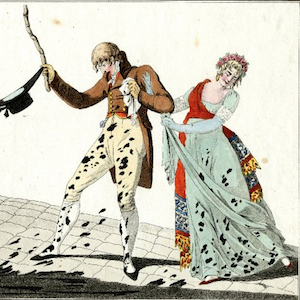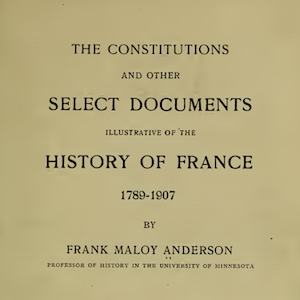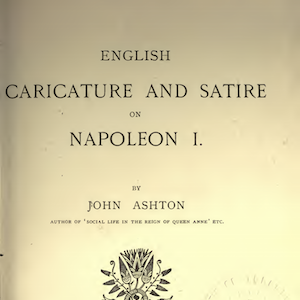Modern (1800 CE - 1950 CE)

The Annoyance of Walking
French nobles had been used to riding in carriages or on horseback. Now, so radicals hoped, they could no longer afford to do so either financially or politically. The imagined response of this social elite reveals clearly to their attackers the worthlessness of such people.

The Cap Français Fire
In June 1793, the French governor of Saint Domingue, Thomas–François Galbaud, tried to raise a revolt of the whites against republican commissioners sent from France. To defeat him, the commissioners promised freedom to the slaves who would fight on their behalf.

Making Peace with the Catholic Church, 1801–2
One of Napoleon’s first priorities was to reestablish good relations with the papacy, which had fought the revolutionary church settlement tooth and nail.

Bonaparte and Islam
Bonaparte’s secretary describes the religious practices, attitudes, and views of Bonaparte with regard to Islam.

In Search of Glory: Bonaparte’s Bulletins
In this passage, Bonaparte’s secretary describes the importance and effect of Bonaparte’s propaganda in the form of the military bulletin from an army in the field. Glory and military virtue were emphasized; generals vied to be included.

The Battle of Waterloo as Seen by an Ordinary British Cavalryman
At the Battle of Waterloo, Dickson (1789–1880) was a corporal in a Scottish cavalry troop. He had enlisted in 1807. His reminiscences of the battle were written down by relatives years later.

Germaine de Staël, A French Writer Exiled by Napoleon
De Staël was the daughter of Jacques Necker, Louis XVI’s Swiss Protestant finance minister. She published novels, literary tracts, and memoirs and became one of the best-known writers of the early nineteenth century. Napoleon exiled her in 1803.

A Popular English Broadside (1821)
Some in the popular classes saw in Napoleon an opponent of monarchs.
This source is a part of the The Napoleonic Experience teaching module.

A Poem by Victor Hugo (1830)
In his poem “To the Column,” the great French poet Victor Hugo celebrates the memory of Napoleon.
This source is a part of the The Napoleonic Experience teaching module.

Historical, Political, and Moral Essay on Revolutions, Ancient and Modern
The French novelist and essayist François–René Chateaubriand (1768–1848) was a royalist who for a time admired Napoleon. Like Burke, he denounced the revolutionary reliance on reason and advocated a return to Christian principles.